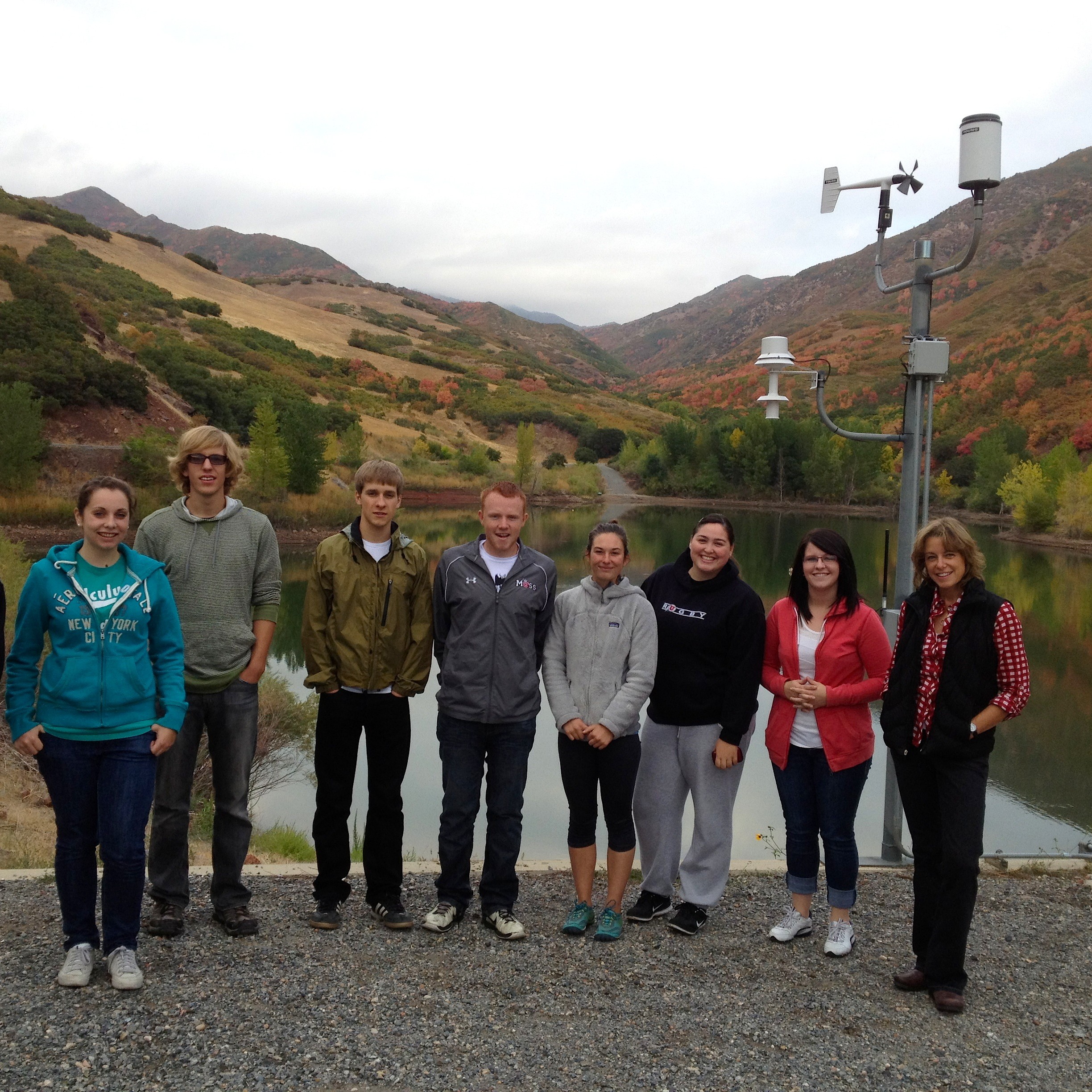
Wasatch Water: Evaporating Opportunities. The 2012-2013 Early Assurance Think Tank will explore the notions of ecosystem services and the American dream with a special focus on water resources along the Wasatch Front. Students will follow water as it flows from its original state (free and clean) as snow, through our urban landscape and out to the Great Salt Lake or Jordan River. How does the value of water change through this landscape? How does its quality change? What has new research in science, engineering, economics, psychology and aesthetics taught us about the value of ecosystem services? How does this new research affect modern notions of the American Dream and our roles as individuals within our societies and ecosystems? What happens when ecosystem services and the American Dream are brought together?
Ecosystem services-“products” such as clean drinking water, decomposition and nutrient recycling and pollination of crop plants, provided by nature at no cost to society.

The American Dream: the notion that life can and should be richer and fuller for every subsequent generation. Early conceptualization of The American Dream, though not put in terms of “ecosystem services” was inherently predicated on the notion that these services were free, infinite and invulnerable.
Tuesdays
5:00-8:00pm
The Donna Garff Marriott Residential Scholars Community. Room: 1205
Faculty
Jim Ehleringer, Distinguished Professor of Biology, Director of the Global Change and Sustainability Center
Jim Ehleringer is a Distinguished Professor of Biology at the University of Utah, where he also serves as Director of the Global Change and Sustainability Center (GCEC) and Director of the Stable Isotope Ratio Facility for Environmental Research. Dr. Ehleringer has developed a multi-disciplinary research and teaching program with a focus on ecology and the environment. He has published over 400 research articles and served as advisor to more than 50 graduate students and postdoctoral investigators. His research ranges from global change impacts on ecosystems through forensic investigations. Jim’s current foci include stables isotopes in biosphere-atmosphere interactions, particularly in urban and arid regions; water relations in ecosystems; geographic variation in human foods; isotopes in animal and human physiology; and stable isotopes applied to forensic and homeland security issues.
Kate Kopischke, a senior mediator with RESOLVE, specializes in conflict resolution and consensus building – with an emphasis on environmental and social issues in the international development arena. Her focus areas include corporate-community stakeholder engagement, collaborative governance, and dispute prevention and resolution in the extractive and natural resources sectors. From 2005 to 2010, she served as Ombudsman & Dispute Resolution Specialist for the Office of the Compliance Advisor Ombudsman, an independent accountability mechanism of the private sector lending arm of the World Bank Group. Prior to her work with the World Bank Group, Kate worked as an independent facilitator and public engagement consultant on a range of projects and programs in the US and abroad. Her focus areas included public policy consensus building, community engagement in natural resource decision-making, and collaborative planning and development. She holds a Master of Arts degree in Intercultural Communication from the University of New Mexico, and advanced training certificates from the Harvard Program on Negotiation, the Centre for Effective Dispute Resolution, the National Ombudsman Association, and others.
